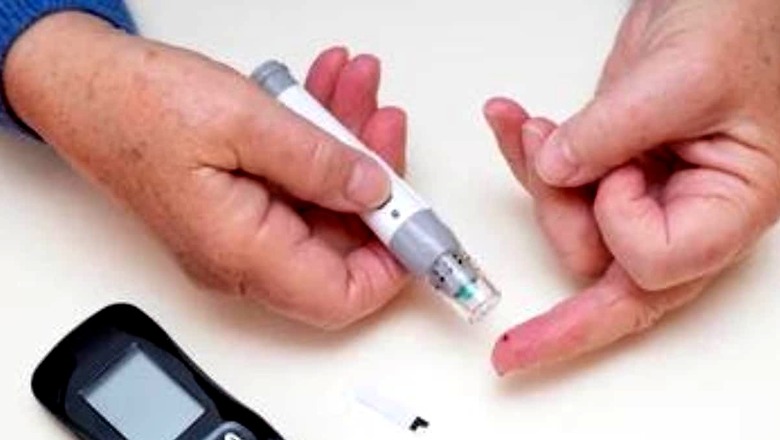
views
Beta cells, found in clusters called islets in the pancreas, are responsible for producing insulin. This hormone is known for its role in regulating blood sugar levels. New research published in Nature Cell Biology journal has revealed that losing a particularly productive type of beta cell might lead to the development of diabetes. Weill Cornell Medicine’s Dr James Lo, along with several colleagues came to this conclusion after measuring gene expression in individual beta cells gathered from mice. They aimed to determine the different types of beta cells in the pancreas.
The researchers found four separate beta cell types in the pancreas. Of these, the ones found in Cluster 1 stood out. According to news agency ANI, upon investigating the beta cells present in both mice and humans, the team discovered that beta cells with high CD63 gene expression in this cluster cells appeared to produce more insulin and even seemed to be better at metabolising sugar. The research findings further suggest that the loss of these beta cells may contribute to type 2 diabetes.
“They are very high-functioning beta cells,” Dr Lo said. His team believes that these cells may fulfil “the bulk of the workload of producing insulin, so their loss might have profound impacts.”
This was confirmed when mice that were fed a high-fat, obesity-inducing, diet and mice with type 2 diabetes showed a decrease in the number of these especially powerful beta cells decreased. During the course of their research, the team also observed lower levels of high CD63 beta cells in humans with type 2 diabetes.
“Because the numbers of cluster 1 high CD63 cells went down, you may have less insulin production, which may play a major role in diabetes development,” Dr Lo said.
Another crucial observation is related to the transplantation of these powerhouse beta cells into mice. The animals with type 2 diabetes who underwent this treatment saw their blood sugar levels restored to normal. This discovery can have some significance for using beta cell transplants to treat diabetes.
Dr Lo said that beta cells were previously referred to as a whole group, without identifying subtypes. “This study tells us it might be important to subtype the beta cells and that we need to study the role of these special cluster 1 beta cells in diabetes,” he said.
Read all the Latest Lifestyle News here




















Comments
0 comment